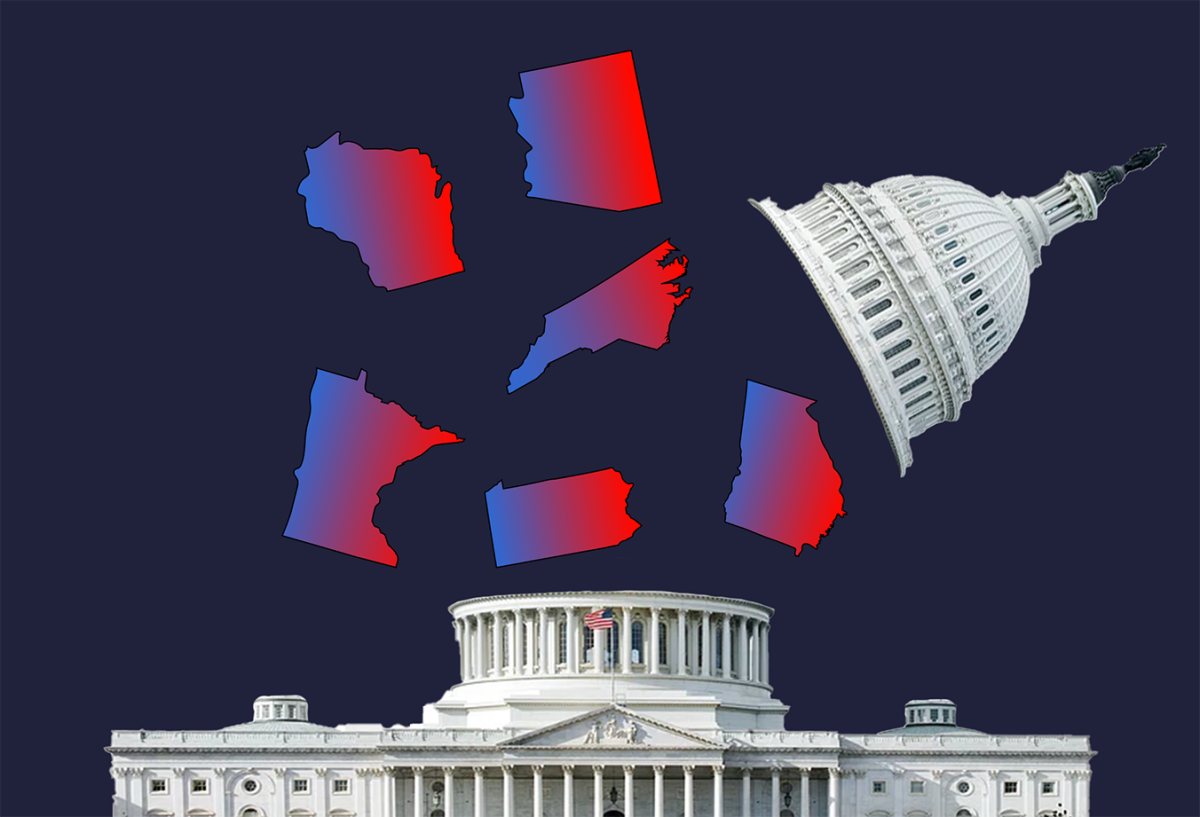In recent years, more people have questioned whether the Electoral College is a system that truly upholds democracy in our nation.
The founding fathers created the Electoral College “as a compromise between the election of the President by a vote in Congress and election of the President by a popular vote,” according to the National Archives.
However, as chatter continues on flaws in current elections, the discussion of downsides of the Electoral College have become more clear.
First of all, understanding the history behind the Electoral College needs to become more prevalent when discussing its purpose. The simple fact is that the Electoral College is rooted in systemic racism and slavery.
Although this form of oppression isn’t necessarily as harmful as previous acts to withhold people of color from voting, it still produced a system favoring a certain group.
James Madison, former U.S. president, in the Madison Debates explains that the creation of the Electoral College required significant compromise between the North and South states.
The South, which had a large group of non-voting slaves, benefitted from the three-fifths compromise which would then create a larger congressional delegation size.
Since 93% of the country’s slave population lived amongst the Southern states, this ultimately increased the Southern states representation in both the Electoral College and Congress.
“Many of the framers of the Constitution were uncomfortable with giving power to the people, and in part devised the Electoral College as a democratic bypass. The Electoral College was also designed to protect the influence of slave states,” Alex Cohen writes for the Brennan Center For Justice.
This historically rooted problem has since created unequitable influences on our election cycles.
Although many tend to debate the concept of “tyranny of the majority” when discussing the Electoral College, I feel as though the argument tends to fall flat.
I can understand the fear of a majority rule, but there’s also a concern for minority rule. Both ideas of “tyranny” create unrealistic checks in power on government and I don’t believe the Electoral College effectively fulfills its role in addressing this concern.
Although, I do not know exactly what a system would look like that could fix the issues the Electoral College brings, I do believe abolishing the Electoral College or at least updating our current system should be taken into action.
Updating this system would consist of redefining the Electoral College votes per state to be more representative of modernity.
The simple act of acknowledging a broken system is the first step that our government needs to make in order to create a system more equally representative of the U.S..
Gov. Andy Beshear mentioned his distaste of the Electoral College at the Team Kentucky press conference.
“I think it gets us closer to a place where we can govern in a way that lifts all Americans up, that we’re not pushed towards any extreme, that we don’t write off crazy things that some candidates may or may not say, but that we would truly get an election for all Americans,” Beshear said.
Many voters found that the Electoral College was unfair, with only 538 electors deciding the fate of a nation for 346 million citizens.
Likewise, many politicians have discussed this issue, including Donald Trump, former and future president of the U.S.
“I would rather see it where you went with simple votes. You know, you get 100 million votes and somebody else gets 90 million votes and you win.” Trump said on 60 minutes.
The Gov. of Minnesota, Tim Walz, also agrees that the Electoral College creates issues.
“I think all of us know, the Electoral College needs to go. We need a national popular vote,” Walz said at a California fundraiser.
As more and more politicians speak on this matter, many see this issue as one that has become more crucial over the last few election cycles.
Over 700 proposals to reform or eliminate the Electoral College have been introduced into Congress, but no changes have been made according to Berkeley Public Policy. However, this growing movement who desire change has shown that people recognize the discrepancies left in the Electoral College.
Although it is not everyone’s first concern when deciding on political systems, it is one that has flaws and should be changed.
Systems such as the Electoral College, have a strong impact on how one’s voice is heard through voting. Which makes abolishing or changing the system crucial. We need a system that represents the modernity of our government, and the Electoral College currently is not an accurate enough tool to represent the nation’s stance.































































































































































